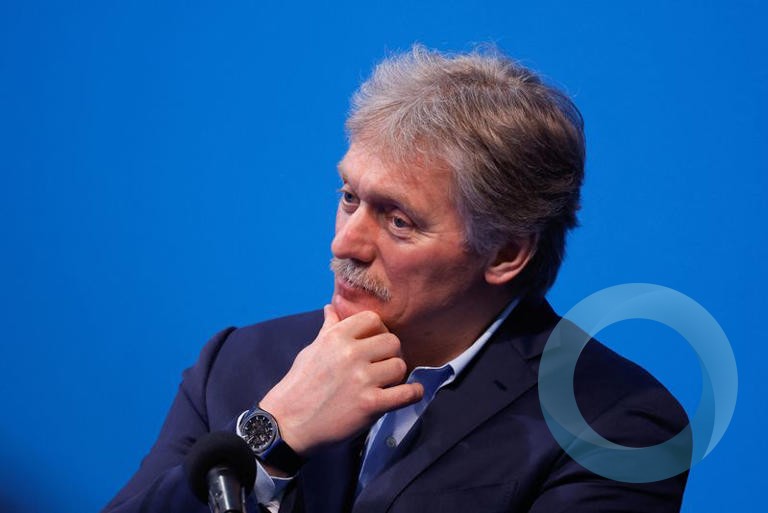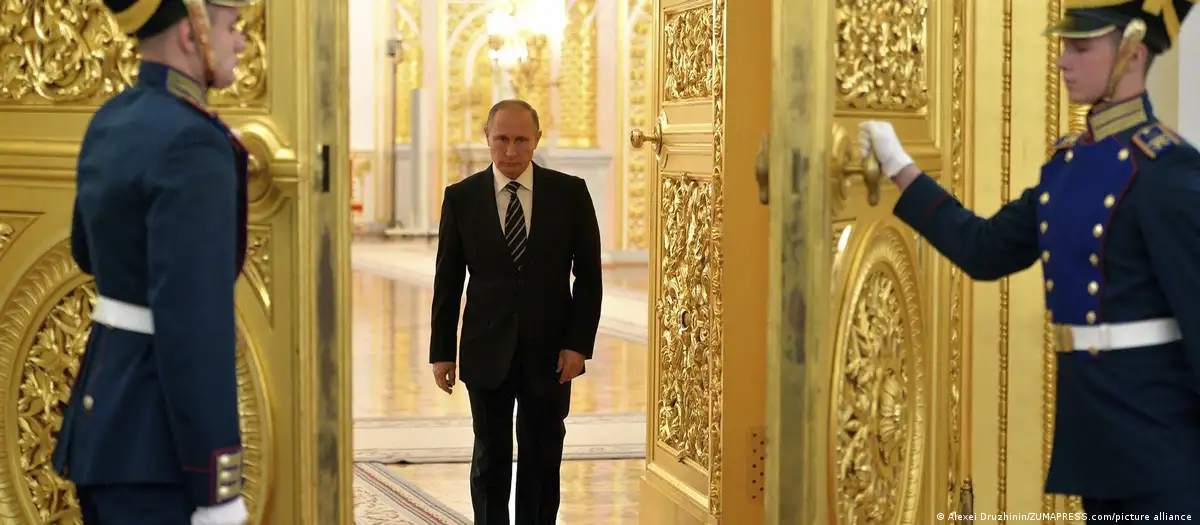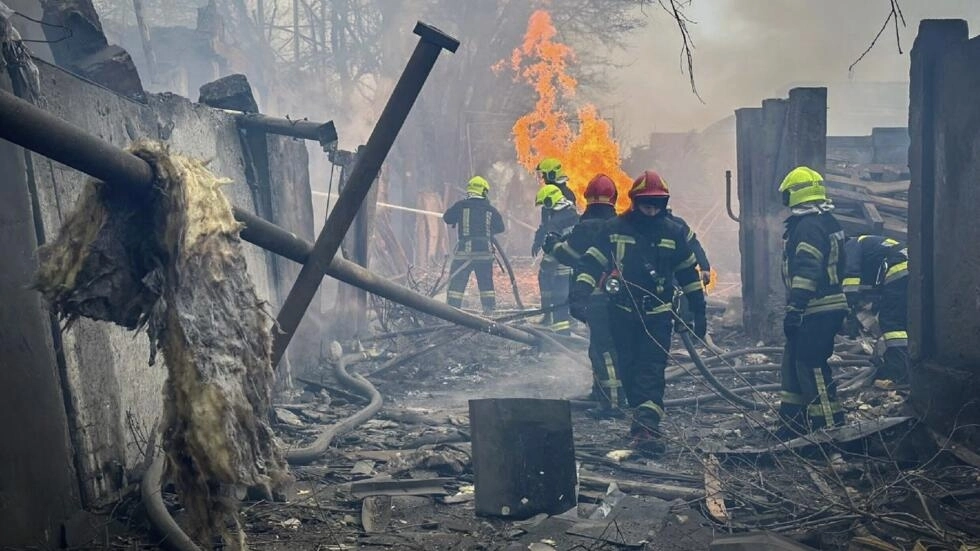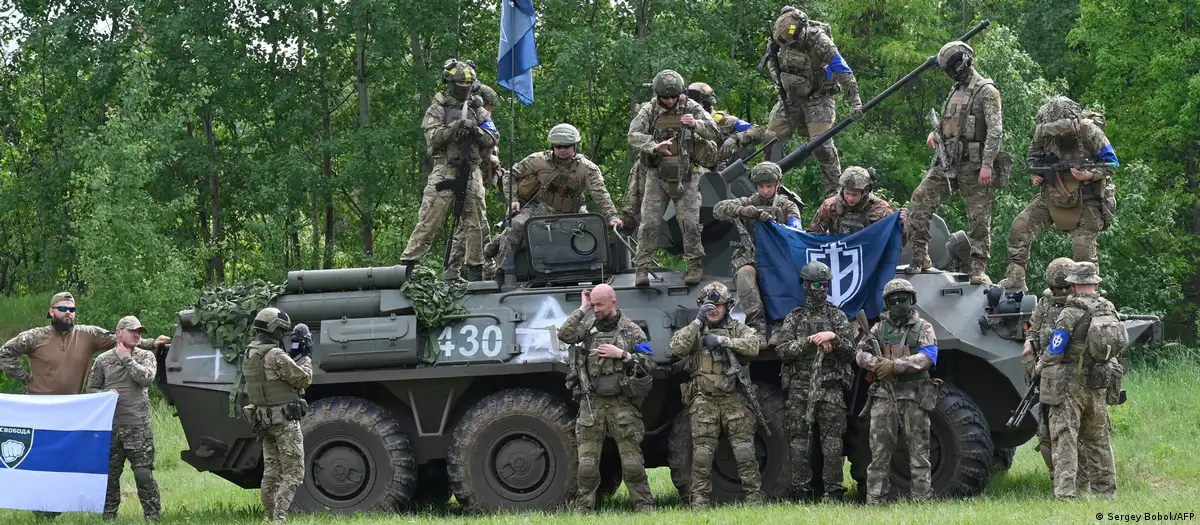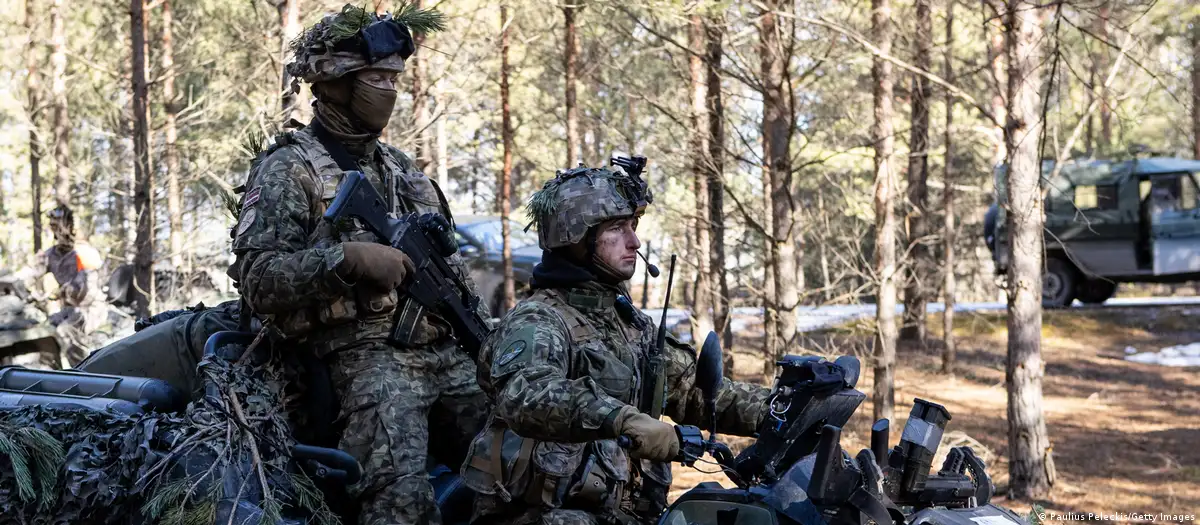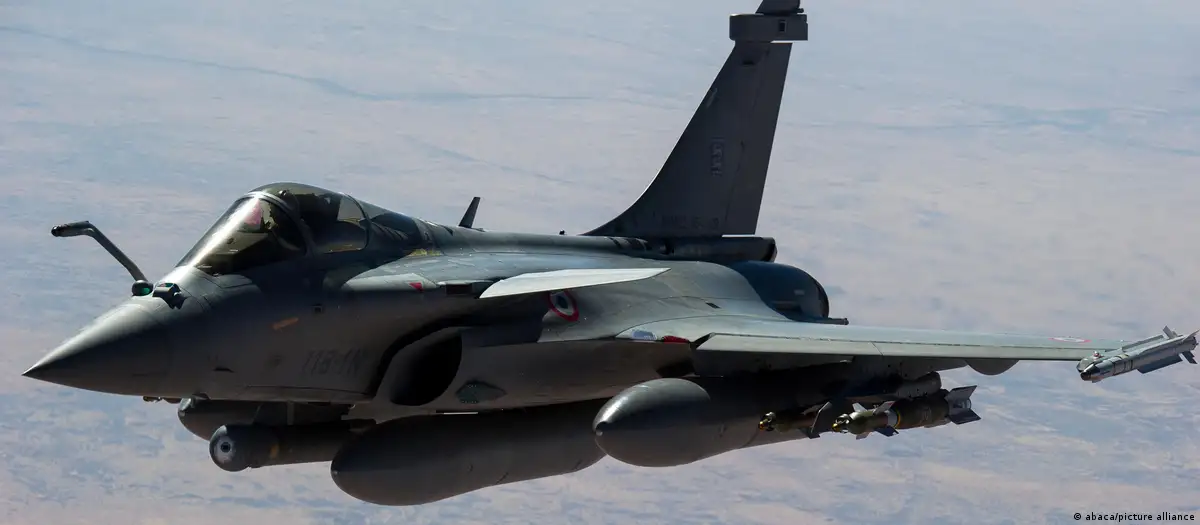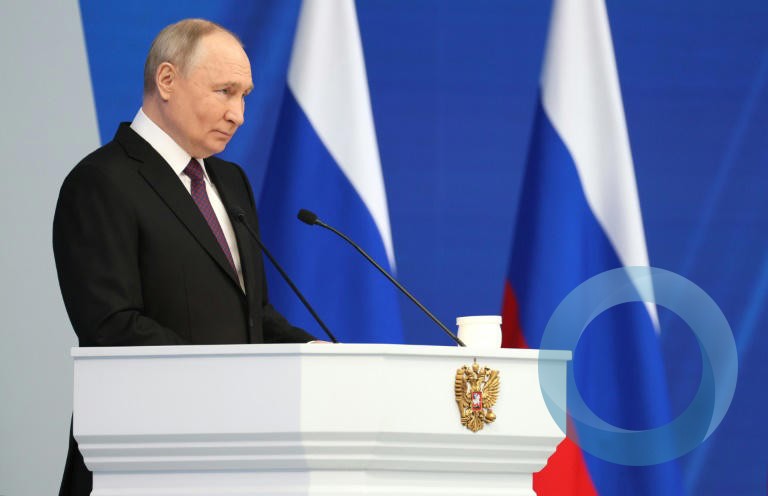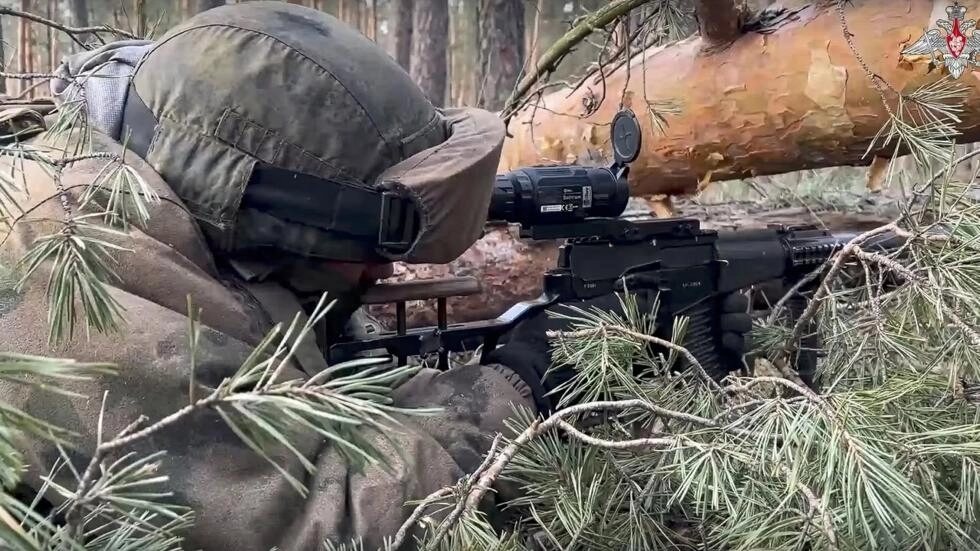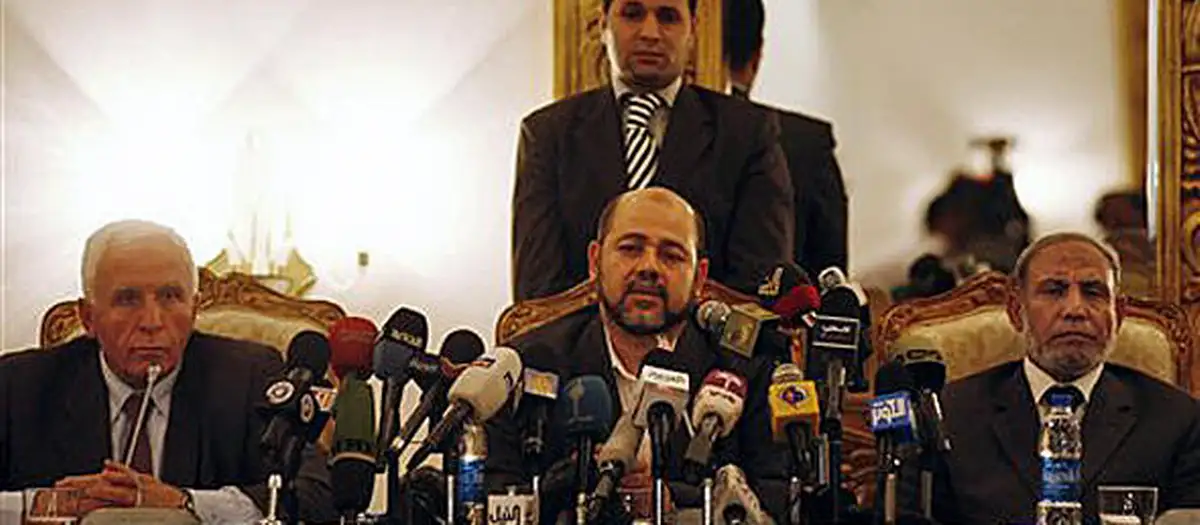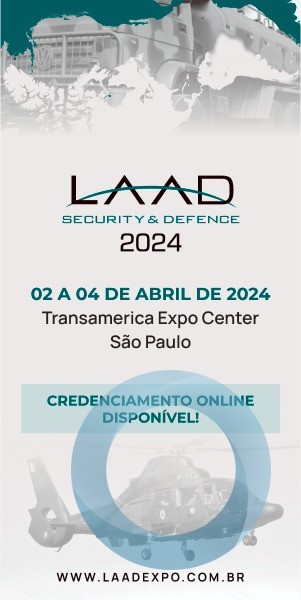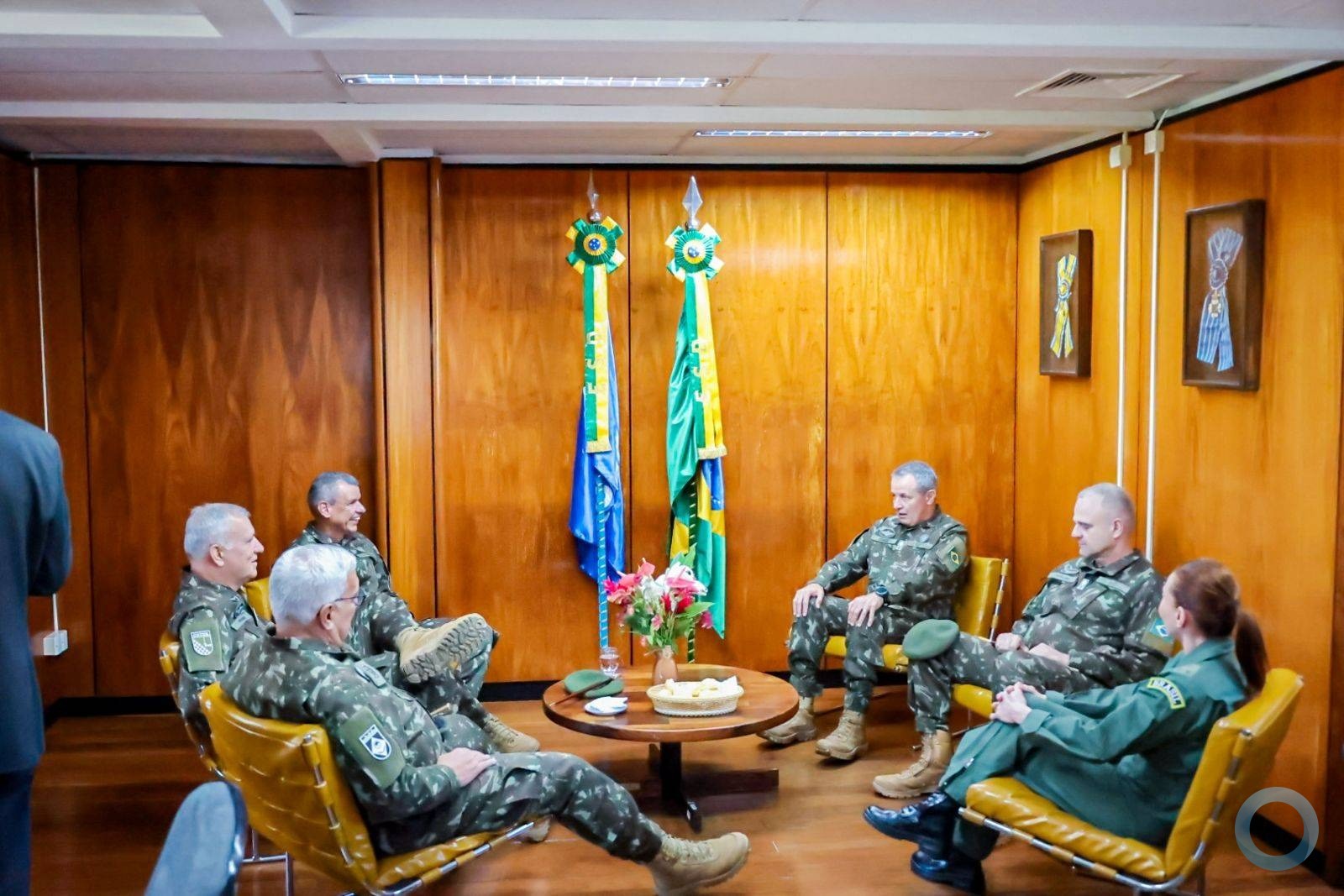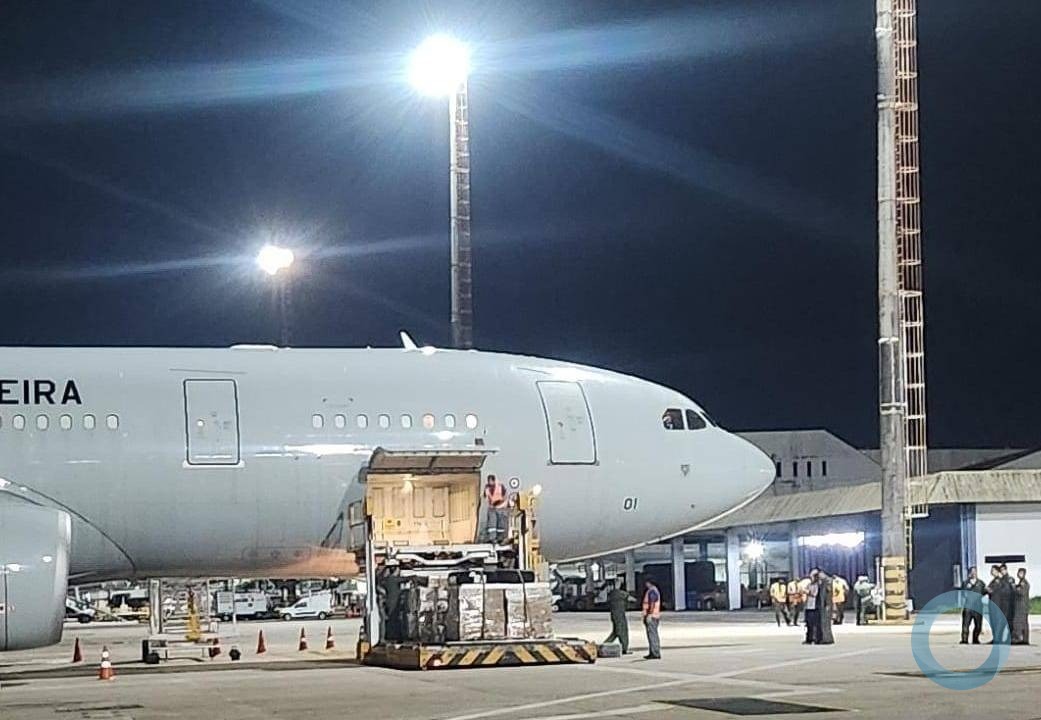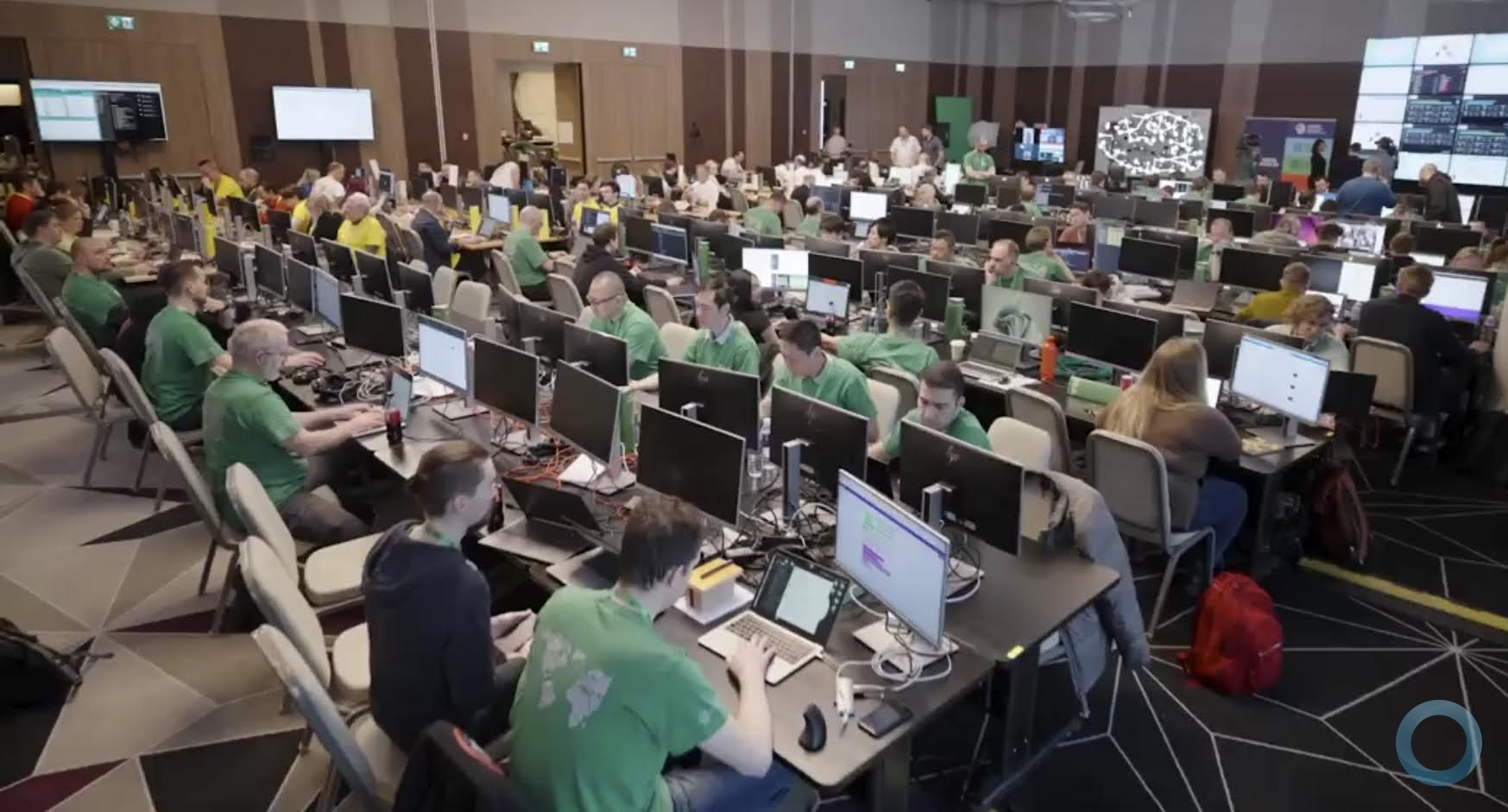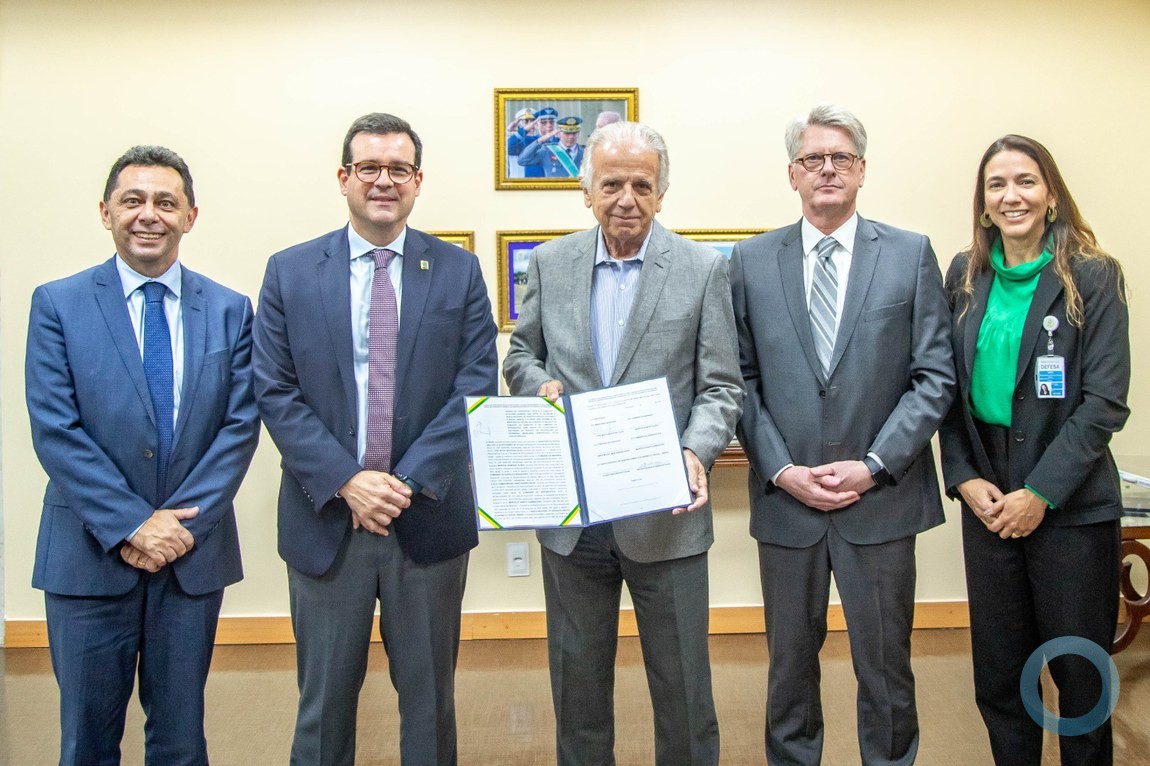The summit was attended by Vladimir Putin, President of Azerbaijan Ilham Aliyev, Prime Minister of Armenia Nikol Pashinyan, President of Belarus Alexander Lukashenko, first President of Kazakhstan Nursultan Nazarbayev, President of Kyrgyzstan Sooronbay Jeenbekov, President of Moldova Igor Dodon, President of Tajikistan Emomali Rahmon and President of Turkmenistan Gurbanguly Berdimuhamedov.
Vladimir Putin told the participants about the archive materials on the pre-history of World War II and invited them to tour a specially organised exhibit.
* * *
Vladimir #Putin: "Onde, de fato, está a verdade sobre a #SegundaGuerraMundial? Todas as propostas da #URSS de criar um sistema unificado de segurança, praticamente a coalizão anti-Hitler em Europa, foram rejeitadas" ??https://t.co/NfOK97YxBz
#truthAboutWWII pic.twitter.com/VFMWkOs6Gs
— Embaixada da Rússia (@embaixadarussa) January 9, 2020
<script async src=”https://platform.twitter.com/widgets.js” charset=”utf-8″></script>
Speech at the informal CIS summit
President of Russia Vladimir Putin: Colleagues, I am very happy to see you. I would like to welcome you once again, in this “very extended” format of CIS heads of state.
We have resolved on events dedicated to the end of the Great Patriotic War between the Soviet Union and Nazi Germany and the Victory of the Soviet Union.
Let me stress that for all of us, and I know you agree, it is a special date because our fathers and grandfathers sacrificed a lot to our Fatherland, our common Fatherland back then. In fact, every family in the former Soviet Union in one way or another suffered from what happened with our country and the world.
We have discussed this many times both formally and informally and decided to work together on the eve of the 75th anniversary. I would like to share some of my thoughts on this.
I was surprised, even somewhat hurt by one of the latest European Parliament resolutions dated September 19, 2019 “on the importance of preserving historical memory for the future of Europe.” We, too, have always strived to ensure the quality of history, its truthfulness, openness and objectivity. I want to emphasise once again that this applies to all of us, because we are to some extent descendants of the former Soviet Union. When they talk about the Soviet Union, they talk about us.


What does it say? According to this paper, the so-called Molotov-Ribbentrop Pact (the foreign ministers of the Soviet Union and Nazi Germany), as they write further, divided Europe and the territories of independent states between two totalitarian regimes, which paved the way for World War II. The Molotov-Ribbentrop Pact ‘paved the way to WWII…’ Well, maybe.
In addition, the European parliamentarians are demanding that Russia stop its efforts aimed at distorting historical facts and promoting the thesis that Poland, the Baltic countries and the West really started the war. I do not think we have ever said anything like this, or that any of the above countries were the perpetrators.
Where is the truth after all? I decided to figure this out and asked my colleagues to check the archives. When I started reading them, I found something that I think would be interesting for all of us, because, again, we all come from the Soviet Union.
Here is the first question. We talk about the Molotov-Ribbentrop Pact all the time. We repeat this after our European colleagues. This begs the question: was this the only document signed by one of the European countries, back then the Soviet Union, with Nazi Germany? It turns out that this is not at all the case. I will simply give a list of them, if I may.
So, the Declaration on the Non-use of Force between Germany and Poland. This is, in fact, the so-called Pilsudski-Hitler Pact signed in 1934. In essence, this is a non-aggression pact.
Then, the Anglo-German maritime agreement of 1935. Great Britain provided Hitler with an opportunity to have his own Navy, which was illegal for him or, in fact, reduced to a minimum following World War I.
Then, the joint Anglo-German declaration of Chamberlain and Hitler signed on September 30, 1938, which they agreed upon at Chamberlain’s initiative. It said that the signed ‘Munich Agreement, as well as the Anglo-German maritime agreement symbolise…’ and so on. The creation of a legal framework between the two states continued.
That is not all. There is the Franco-German Declaration signed on December 6, 1938 in Paris by the foreign ministers of France and Germany, Bonnet and Ribbentrop.
Finally, the treaty between the Republic of Lithuania and the German Reich signed on March 22, 1939 in Berlin by the foreign minister of Lithuania and Ribbentop to the effect that Klaipeda Territory will reunite with the German Reich.
Then, there was the Nonaggression Treaty between the German Reich and Latvia of June 7, 1939.
Thus, the Treaty between the Soviet Union and Germany was the last in a line of treaties signed by European countries that seemed to be interested in maintaining peace in Europe. Also, I want to note that the Soviet Union agreed to sign this document only after all other avenues had been exhausted and all proposals by the Soviet Union to create a unified security system, in fact, an anti-Nazi coalition in Europe were rejected.
In this connection, I am asking you to take a few minutes to return to the origins, to the very beginning, which I find very important. I suggest beginning, as they say, from ‘centre field’, as they say, I mean from the results from World War I, from the Versailles Peace conditions written in the Treaty of Versailles in 1919.
For Germany, the Treaty of Versailles became a symbol of blatant injustice and national humiliation. In fact, it meant robbing Germany. I will give you some numbers, because they are very interesting.
Germany had to pay the Triple Entente countries (Russia left the winners and did not sign the Treaty of Versailles) an astronomical sum of 269 billion golden marks, the equivalent of 100,000 tonnes of gold. For comparison, I would say the gold reserves as of October 2019 are 8,130 tonnes in the US, 3,370 tonnes in Germany and 2,250 tonnes in Russia. And Germany had to pay 100,000 tonnes. At the current price of gold of $1,464 for a troy ounce, the reparations would be worth about $4.7 trillion, while the German GDP in 2018 prices, if my data are correct, is only $4 trillion.
Suffice it to say that the last payments of 70 million euros were made quite recently, on October 3, 2010. Germany was still paying for World War I on the 20th anniversary of the Federal Republic of Germany.
I believe, and many, including researchers, agree that the so-called spirit of Versailles created an environment for a radical and revanchist mood. The Nazis were actively exploiting Versailles in their propaganda promising to relieve Germany of this national shame, so the West gave the Nazis a free hand for revenge.
For reference, I can say that the man behind the French victory in World War I, Marshal Ferdinand Foch, the French commander, spoke about the results of the Treaty of Versailles and once uttered a famous prophecy, I quote: “This is not peace. It is an armistice for twenty years.” He was right even about the time.
US President Woodrow Wilson warned that giving Germany reason to avenge one day would be a big mistake. The internationally renowned Winston Churchill wrote that the economic articles of the treaty were vicious and stupid to the point of being clearly meaningless.
The Versailles world order gave rise to many conflicts and disagreements. They are based on the borders of new states arbitrarily drawn up in Europe by the winners of World War I. That is, the borders were reshaped. This created conditions for the so-called Sudeten crisis. Sudetenland was part of Czechoslovakia where the German population lived. Here is a reference document about the Sudeten crisis and the ensuing so-called Munich Conference.
In 1938, 14 million people lived in Czechoslovakia, of which 3.5 million were ethnic Germans. On September 13, 1938, a rebellion broke out there, and Great Britain immediately proposed talking to Hitler and appeasing him in order to keep the peace. I will not bore you with the details of the correspondence and talks, but they led to the signing of the well-known Munich agreement.
To reiterate, we used some archive materials. I want to explain some of them. We have an encrypted message from the Soviet Plenipotentiary Envoy to France to the People's Commissar for Foreign Affairs Litvinov dated May 25, 1938, about a confidential conversation with French Prime Minister Daladier.
I will read an excerpt, as it is an interesting document. “Prime Minister of France, Eduard Daladier, has devoted the past several days to clarifying Poland’s position.” This refers to the Munich Agreement, as a result of which Sudetenland, part of Czechoslovak territory, was supposed to go to Germany. ‘The probe in Poland gave an utterly negative result,’ the Prime Minister of France said. “Not only can we not rely on Polish support, but there is no certainty that Poland will not stab us in the back.” Contrary to Polish assurances, Daladier does not believe in the Poles’ loyalty, even if Germany were to directly attack France. He demanded a clear and unambiguous answer from the Poles as to whose side they are on in peace and in war. In this regard, he asked the Polish ambassador to France, Juliusz ?ukasiewicz, a number of direct questions. He asked him if the Poles would let Soviet troops pass through their territory. ?ukasiewicz said no. Daladier then asked if they would let Soviet planes fly across their territory. ?ukasiewicz said the Poles would open fire on them. When ?ukasiewicz said no to the question of whether Poland would come to the rescue if after a German attack on Czechoslovakia (there was an agreement on mutual assistance between France and Czechoslovakia)… Germany declares war on France. The Polish representative said no. Daladier said he saw no reason in a Franco-Polish alliance and the sacrifices that France is making as part of it.“
So what does this mean? It means the Soviet Union was ready to help Czechoslovakia, which Nazi Germany was going to rob. But the agreement between the Soviet Union and Czechoslovakia stated that the Soviet Union would do this only if France fulfilled its obligations to Czechoslovakia. France linked its aid to Czechoslovakia to support from Poland. But Poland refused to provide it.
The following document is this document No. 5 in front of me, which I have just spoken about. Let us go ahead. The sixth document.
What did the Polish authorities do when Germany began to claim part of Czechoslovak territory? They also laid claim to their part of the “prey” during the partitioning of Czechoslovak territory and demanded that a certain part of Czechoslovakia be transferred to them. Moreover, they were ready to use force. They formed a special military group called ‘Silesia,’ which included three infantry divisions, a cavalry brigade and other units.
There is also a specific document from the archives. From a report from a commander of the Silesia Independent Operation Group, a Mr Bortnowski on preparations for the offensive operation, the capture of Tesin Silesia and the training of troops, the Polish authorities trained and sent militants to Czechoslovakia to carry out sabotage and terrorist attacks and actively prepare for the partitioning and occupation of Czechoslovakia.
The next document is a record of a conversation between German Ambassador to Poland Mr Moltke and Polish Foreign Minister, Mr Beck. In this document, Polish Foreign Minister Beck spoke directly about this, I quote: “In the areas claimed by Poland, there will be no conflict with German interests.” Therefore, there will be a division of Czechoslovak territory.
Immediately after the Munich Agreement was concluded on September 30, 1938, Warsaw, having imitated in fact Nazi methods, sent an ultimatum to Prague with an unconditional claim for part of the territory of Czechoslovakia – Tesin Silesia. France and Great Britain did not support Czechoslovakia, which forced it to yield to this violence. Simultaneously with Germany, which annexed Sudetenland, Poland began a direct seizing of Czechoslovak territory on October 1, 1938, thereby violating the agreement it had previously concluded with Czechoslovakia.
The next document tells about the final agreement to set the border between Poland and Czechoslovakia. Here is what this is about: on July 28, 1920, with the arbitration of the Triple Entente, Poland and Czechoslovakia signed the so-called final border agreement, which gave the western part of Czechoslovakia’s Cieszyn Region to the Czechs and the eastern part to Warsaw. Both parts officially recognised and, more importantly, guaranteed their shared border.
Of course, Poland understood that without Hitler’s support all attempts to seize part of Czechoslovakia were doomed to fail. In this context, I would like to cite a very interesting document: a recorded conversation between German Ambassador in Warsaw Hans-Adolf von Moltke and Josef Beck about Polish-Czech relations and the USSR’s position on this from October 1, 1938.
The German ambassador reports to his superiors in Berlin. Mr Beck – let me remind you that he was the Foreign Minister of Poland – expressed his deep gratitude for the loyal interpretation of Polish interests at the Munich conference as well as for the sincere relations during the Czech conflict. The Polish government and people credited Hitler and the Reichskanzler, which means he was grateful for Hitler’s actions at the conference in Munich.
It is noteworthy that representatives of Poland were not invited to the Munich conference, and that their interests were in fact represented by Hitler.
At this point Poland assumed the role of instigator: it tried to draw Hungary into the division of Czechoslovakia, which means deliberately pulling other countries into violating international law. It was well known to other European countries, including to both Great Britain and France, that Germany and Poland acted together.
The next, tenth document. From a report by French Ambassador to Germany André François-Poncet to the Foreign Minister of France Georges-Étienne Bonnet of September 22, 1938. I will read it; it is a very interesting document. Next comes a quote, it is the French ambassador’s report to his superior in Paris; he writes, “This is about the demarches taken by Poland and Hungary on September 20 to the Fuehrer, and in London, which were designed to point out that Warsaw and Budapest would not agree to exercising a less favourable plan for their ethnic minorities in the Czechoslovakian state than the plan offered to Sudeten Germans. This was equivalent to a statement, the French Ambassador goes on to say, that ceding territories inhabited by the German majority should also entail Prague’s surrender of the T?šín district and 700,000 Hungarians in Slovakia. Therefore, the presumed divestiture of the territory would amount to the partitioning of the country (that is, Czechoslovakia).”
This is exactly what the Reich wanted. Poland and Warsaw were joining Germany in hounding Czechoslovakia. France and England, who were trying to offer concessions and doing their best to meet Germany’s demands, wanted to save the existence of the Czech state, which was facing a united front of three states that were set to partition Czechoslovakia.
The leaders of the Reich, who made no secret of their goal to erase Czechoslovakia from the map of Europe, immediately used the Polish and Hungarian demarches to declare through their official print media as early as September 21, that a new situation had emerged which required a new solution.
Next. The fact that Poland expressed its appetite once it felt the hour for the division of the spoils was coming, could not have come as a surprise to those who were aware of the intentions of Polish Foreign Minister Beck, who had displayed an increasing caution about Germany and was fully informed of the designs of Hitler’s leaders. In particular, due to regular contact with Hermann Goering throughout several months, the Polish foreign minister believed that the partitioning of Czechoslovakia was unavoidable, that it would happen before the end of 1938. Beck also made no secret of his intentions to claim T?šín and to occupy it if needed.
And the last point. The differences between the party led by Konrad Henlein – the party’s leader in Czechoslovakia – and the Czechs only served as a pretext and the starting point for the Reich as, by persecuting the Prague authorities, the Reich could achieve its main objective, which was to take down a barrier to Germany’s expansion, as Czechoslovakia was an ally of France and Russia in Central Europe.
This is significant. How did the leading politicians around the world respond to the Munich Betrayal, an agreement signed between Hitler, Great Britain and France in 1938? What did well-known people who earned the respect of the public around the world and Europe say back then? We can say that with a few exceptions their reaction was positive and optimistic. Only Winston Churchill was honest in describing the situation, calling a spade a spade.
I want to add that after the agreement was signed, the British Prime Minister, speaking outside his residence on Downing Street upon his return from Munich on September 30, 1938, said: “For the second time in our history, a British Prime Minister has returned from Germany bringing peace with honour. I believe it is peace for our time.” That is, for our generation.
After the Munich Agreement was signed, Franklin Roosevelt in his message of greetings to Chamberlain dated October 5, 1938, wrote that he completely shared his belief that this was a great opportunity to establish a new order based on justice and the rule of law.
On October 19, 1938, US Ambassador to the UK Joseph Kennedy, the father of future president John Kennedy, gave the following assessment of the Munich Agreement signed between the Western countries, or democracies, and Germany and Italy: It has been my belief for a long time now that it is unproductive and unreasonable on the part of both democracies and dictatorships to emphasise the existing differences between them. They can benefit from working towards resolving their common problems, something that will change relations between them for the better.
And now from Churchill’s speech made in the House of Commons in the British Parliament on October 5, 1938: “We have sustained a total and unmitigated defeat… All is over. Silent, mournful, abandoned, broken, Czechoslovakia recedes into the darkness… Do not let us blind ourselves to that.” He said we should stop deceiving ourselves; we must look realistically at the scale of the disaster that the world is facing. “A disaster of the first magnitude has befallen Great Britain and France… We have sustained a defeat without a war, the consequences of which will travel far with us along our road… And do not suppose that this is the end. This is only the beginning of the reckoning. This is only the first sip.” Quite an assessment.
What was Churchill talking about? The fact that, in Munich, the so-called Western democracies had betrayed their ally, signaling that war was imminent.
Speaking at a League of Nations plenary meeting in September 1938, our Foreign Minister Maxim Litvinov said, “Avoiding a likely war today and getting a sure and universal war tomorrow – and that at the cost of feeding the aggressors’ insatiable appetite and destroying sovereign countries – does not mean acting in the spirit of the League of Nations pact.” That is, the Soviet Union condemned this event.
In this connection, I would like to present the following very important document; it is a curious document. Actually, we have all of them displayed at our exhibit. This is a response from the Political Bureau of the Russian Communist Party (Bolsheviks) to the September 20, 1938 cable from the USSR’s Plenipotentiary Envoy to Czechoslovakia, Alexandrovsky. On September 20, 1938, the Political Bureau of the Russian Communist Party (Bolsheviks) unanimously gave a positive answer to the direct question from President Edvard Benes as to whether the USSR would deliver prompt assistance to Czechoslovakia if France stood loyal to it.
Further, on September 23, 1938, the Soviet Union officially notified Poland that if it invaded Czechoslovakia, the Soviet-Polish non-aggression pact would be terminated. Poland’s Foreign Minister Jozef Beck called this a propaganda ploy of no significance.
In addition, while considering the forthcoming invasion of Tesin, Poland did everything it could to prevent the Soviet Union from fulfilling its obligations to provide assistance to Czechoslovakia. As you recall, they were going to shoot down Soviet planes, and not allow the transit of Soviet troops to help rescue Czechoslovakia. Meanwhile, France, the chief ally of the Czechs and Slovaks at the time, in fact reneged on its guarantees to defend Czechoslovakia’s integrity.
Being left alone, the USSR had to face the reality created by the Western states. The partitioning of Czechoslovakia was cruel and cynical, in essence, it was pillaging. We have every reason to say that the Munich agreement was the turning point in history following which World War II became inevitable.
Hitler could have been stopped in 1938 through the collective efforts of the European states. This was acknowledged by the Western leaders themselves.
Another reference to a document. This is a transcript of conversations of May 17, 1939, between representatives of the French and Polish Commands about the possibilities of war in Europe between the Italian-German and Polish-French coalitions. The French Chief of Staff said at a meeting with the Polish Minister of Military Affairs that the overall situation in 1938 offered many more opportunities for opposition to Germany. So what was he talking about? That given a timely response, the war could have been avoided. Meanwhile, during the Nuremberg Trials, Field Marshall Keitel said, when responding to the question of whether Germany would have attacked Czechoslovakia in 1938 if the Western powers had supported Prague, “No. We were not strong enough militarily.” The Munich [agreement] objective was to push Russia out of Europe, gain time and complete the arming of Germany.
The Soviet Union consistently tried to prevent the tragedy of partitioning Czechoslovakia based on its international obligations, including its agreements with France and Czechoslovakia. However, Britain and France preferred to throw a democratic East European country to the Nazis to appease them. And not only that, but also to steer Nazi aspirations eastward. Polandat the time, unfortunately, was instrumental in this. The leaders of the Second Rzeczpospolita did everything they could to resist a collective security system that would include the USSR.
I want to show you another document – a transcript of Adolf Hitler’s conversation with Foreign Minister of Poland Jozef Beck of January 5, 1939. This document is indicative. It is a sort of distillation of the joint policy of the German Reich and Poland on the eve of, in the course of, and after the end of the Czechoslovakia crisis. The content is cynical in its attitude towards neighbouring nations and Europe as a whole. And it clearly illustrates the contours of the Polish-German alliance as a striking force against Russia.
Let me quote just a few excerpts. Document 13. Everything is in fine print here. This is a copy of the May 17, 1939 document, and I asked my colleagues to make excerpts for me so they are readable.
So, quote number one. The Fuehrer says bluntly, “It was not easy to get the French and the English to consent to the inclusion of Polish and Hungarian claims to Czechoslovakia in the Munich agreement.” This means Hitler was working in the interests of those countries then. In fact, Hitler was an attorney for the Polish authorities in Munich.
And the second quote. The Polish minister says, with certain pride, that Poland does not show such nervousness about enhancing its security as, for example, France does, and attaches no importance to the so-called security systems that went completely bankrupt after the September crisis (Sudetenlandcrisis) in Czechoslovakia. They do not want to establish anything. The Polish foreign minister says this to Hitler directly.
None of the decision-makers in Berlin or Warsaw cared about the fact that the security system in Europe was disintegrating. They cared about something else.
In this connection, the third quote. Hitler says (Adolf Hitler’s words), “Under all circumstances, Germany will be interested in the preservation of a strong national Poland, absolutely independently from the situation in Russia. Be it Bolshevik, Tsarist or any other Russia, Germany will always be extremely cautious in regard to this country. A strong Polish army takes a considerable burden off Germany. The divisions that Poland is forced to keep on the Russian border relieve Germany of additional military expense.” This looks like a military alliance against the Soviet Union.
This document, as you can see, was completely undisguised, and it did not come out of nowhere. This was not a result of tactical manoeuvring but rather a reflection of the consistent trend towards Polish-German rapprochement to the detriment of the Soviet Union. And I have more evidence in this vein, though from earlier dates, it is very revealing
This is an excerpt from a conversation between Polish Deputy Foreign Minister Jan Szembek and Hermann Goering about Polish-Soviet relations of November 5, 1937. Goering is confident that the Third Empire, that is, the Third Reich, will not be able to cooperate with the Soviets and with Russia in general regardless of its internal structure. Goering also added that Germany needs a strong Poland whereby he added that the Baltic Sea is not enough for Poland and it must have access to the Black Sea.
Both then and now, Russia is used to scare people. Be it Tsarist, Soviet or today’s – nothing has changed. It does not matter what kind of country Russia is – this rationale remains. We should also not confuse ideological terms – Bolshevik, Russian, whatever, our former common homeland, the Soviet Union. To achieve this, they will make a deal with anyone, including Nazi Germany, we can, in fact, see this.
And related to that is another very revealing document – a transcript of the conversation between the German Minister of Foreign Affairs, Joachim Ribbentrop, and Polish Foreign Minister Jozef Beck on January 6, 1939. We got hold of a fairly substantial number of documents from Eastern Europe and Germany after World War II. Joachim Ribbentrop expressed Germany’s position, which, I quote, “will proceed from viewing the Ukrainian issue as Poland’s privilege, and we support Poland in all respects during the discussion of this issue, however, only on condition that Poland takes a more salient anti-Russian stance (this is a quote) since otherwise we (Nazi Germany) are unlikely to have common interests.” Responding to Ribbentrop’s question as to whether Poland had given up Marshal Pilsudski’s ambitions regarding Ukraine, Mr Beck said, “The Poles have already been to Kiev, and these plans are undoubtedly still alive today.”
Actually, this happened in 1939. Let us hope that at least something has changed in this respect. However, the foundation of what I am sharing now is pathological Russophobia. The European capitals, incidentally, were perfectly aware of that. Poland’s Western allies at that time were perfectly aware of that.
The following document will prove what I have just said. This is a report by Ambassador of France to Poland, Mr Leon Noel, to Foreign Minister of France Georges Bonnet on his conversations with his Polish colleagues of May 31, 1938. In this document, the French ambassador wrote about the unequivocal statements made by the Polish leaders, who did not mince words during their meeting.
To quote, “When a German is a rival, he nevertheless remains a European and a man of order.” And Poland would soon find out what a “European and man of order” means. Everyone experienced this on September 1, 1939.
According to Noel, the Poles saw Russians as barbarians with whom “all contact would be perilous and all compromise mortal.” To comment, this can be seen as a typical example of racism and contempt for the “untermensch,” a Nazi concept that included Russians, Belarusians, Ukrainians, and later the Poles themselves.
You know, in this context, I look at the cases of Russophobia, anti-Semitism and so on in certain European countries, and they bear a striking resemblance to this.
Aggressive nationalism always makes one blind and eliminates any and all moral boundaries. Those who take this path will stop at nothing to achieve their goals – but ultimately, it will hit them back, which we have seen repeatedly.
In this context, here is another document to support this, a report by Ambassador of Poland to Nazi Germany Jozef Lipski to Polish Minister of Foreign Affairs Jozef Beck of September 20, 1938, which I think is necessary to read to you aloud. Mr Lipski had spoken to Hitler, and this is what he, the Polish ambassador, wrote to his Minister of Foreign Affairs: “Further to our discussion, the Chancellor of Germany, Hitler persistently emphasised that Poland is a paramount factor that protects Europe from Russia.”
It follows from Hitler's other statements that he suddenly had an idea that the Jewish issue can be resolved through migration to colonies in accord with Poland, Hungary, and maybe also Romania. Hitler suggested forcibly expelling the Jewish population from Europe to Africa first – and not just expelling them but actually sending them to their extermination. We all know what was meant by colonies in 1938 – it meant extermination. This was the first step towards genocide, the extermination of Jews and what we today know as the Holocaust.
And this is what the Polish ambassador wrote to the Polish Foreign Minister in this connection – apparently hoping for understanding and approval: I, meaning the Polish Ambassador to Germany, responded, he writes to his Foreign Minister, that if this happens and this issue is resolved, we will build a beautiful monument to him, to Hitler, in Warsaw. There.
An excerpt from the above-mentioned conversation between Adolf Hitler and Polish Foreign Minister Jozef Beck of January 5, 1939. Hitler said, “Another issue of common interest for Germany and Poland is the Jewish issue.” He, the Fuhrer, is firmly resolved to oust Jews from Germany. At that moment, they would be allowed to take along some of their belongings, and Hitler noted, they would definitely take with them much more from Germany than they had when they had settled in that country. But the longer they procrastinate with emigration, the less property they will able to take with them.
What is this? What kind of people are they? Who are they? I have the impression that today’s Europe wants to know nothing about it, it is being deliberately hushed up while they try to shift the blame, including for starting World War II, from the Nazis to the Communists.
Yes, we know who Stalin was, we have given our assessments of him. But I think the fact remains that it was Nazi Germany that invaded first Poland on September 1, 1939, and then the Soviet Union on June 22, 1941.
And what kind of people are those who hold such conversations with Hitler? It was them who, while pursuing their mercenary and exorbitantly overgrown ambitions, laid their people, the Polish people, open to attack from Germany’s military machine, and, moreover, generally contributed to the beginning of the Second World War. What else can one think after reading these documents?
And something we also witness today: they desecrate the graves of those who won that war, who gave their lives, including in Europe, while liberating those countries from Nazism.
By the way, it occurred to me that it had nothing to do with Stalin whatsoever. The monuments in Europe were erected to our regular Red Army soldiers, including those who came from currently absolutely independent states established after the dissolution of the Soviet Union. They were ordinary people. Who were these Red Army soldiers? They were mainly farmers and workers, many of whom also suffered from the Stalin regime – some of them were repressed kulaks, some had family members sent to labour camps. These people died as they were liberating the European countries from Nazism. Now memorials to them are being demolished, among other things, so that the facts of a real collusion of some European leaders with Hitler should not surface. This is not revenge on Bolsheviks: they are doing all they can to conceal their own position.
Why did I say that the leaders of those countries, including Poland, at that time, actually threw their people under the chariot of Nazi Germany’s military machine? Because they underestimated the real reasons underlying Hitler’s actions.
This is what he said at a meeting with German Army commanders at the Reich Chancellery, I quote: “The point is not Danzig,” this is a city that was declared to be an international entity and which Germany wanted back after World War I, “the point for us is to expand the Lebensraum eastward and to ensure food supplies.” It was not about Poland at all. The point is that they needed to pave the road for an aggression against the Soviet Union
The Soviet Union was trying to the utmost to use every opportunity for establishing an anti-Hitler coalition, held talks with military representatives of France and Great Britain, thus attempting to prevent the outbreak of World War II, but it practically remained alone and isolated. As I have already said, it was the last of the European states concerned that was compelled to sign a non-aggression pact with Hitler.
Yes, there is a classified part on the partitioning of some territory. But we do not know the content of other European countries’ agreements with Hitler. Because while we have de-classified these documents, the Western capitals are still keeping all this classified. We know nothing of their contents. But now we do not need to, because the facts show that there was collusion. In essence, we see the partitioning of a democratic independent state, Czechoslovakia. And the participants in it were not just Hitler but also the then leaders of those countries. It was this that opened the road to the east for Hitler, it was this that became the cause of the outbreak of World War II.
One more point concerning the Soviet Union’s actions after Germany launched a war against Poland. Let me remind you that in the west, in the area of Lvov, the Polish garrison was still resisting, this is true. When the Red Army advanced, they surrendered their weapons to the Red Army. Actually, the fact that the Red Army’s units entered there saved many lives of the local population, mainly the Jewish population. Because all those present here know that the percentage of the Jewish population in that area was very high. If the Nazis had entered, they would have cut out everyone and sent them to the furnaces.
Concerning Brest, for instance, the Red Army advanced there only after those territories were occupied by German troops. The Red Army did not wage any hostilities with anyone there; they were not fighting with the Poles. Moreover, by that time the Polish government had lost control over the country, over the armed forces, and stayed somewhere close to the Romanian border. There was nobody to have any negotiations with. Let me reiterate, the Brest Fortress, which we all know as a citadel for defending the interests of the Soviet Union and our common Fatherland and one of the most extraordinary pages in the history of the Great Patriotic War, was only occupied by the Red Army after the Germans left. They had already captured it, thus in reality the Soviet Union did not seize it from Poland.
In conclusion, I would like to remind you of the way contemporaries assessed the results of the victory over Nazism and the contribution of each of us to that victory, starting with 1941.
Churchill’s statement: “I am very glad to … learn from many sources of the valiant fight and many vigorous counter-attacks with which the Russian armies are defending their native soil. I fully realise the military advantage you have gained by forcing the enemy to deploy and engage on forward Western fronts,” “on forward Western fronts” – I draw your attention to this, the British leaders of the time admitted that this had a combat importance in fighting Nazi Germany, “thus exhausting some of the force of his initial effort.” That means the power of the initial assault of the Nazi army was weakened by the fact that the Red Army advanced to new frontiers. So advancing to these new positions also had a military importance for the Soviet Union.
And now a quote from Winston Churchill’s personal message to Joseph Stalin of February 22, 1945. It was on February 22, the eve of the 27th anniversary of the Red Army. Churchill writes that the Red Army celebrates its twenty-seventh anniversary amid triumphs, which have won the unstinted applause of their allies. And I would like to stress the following in connection with the resolution adopted recently by our colleagues in the European Parliament: “Future generations will acknowledge their debt to the Red Army as unreservedly as do we who have lived to witness these proud achievements.” But we see how the present-day generation of European politicians reacts to this.
Here is what Roosevelt wrote to Stalin in 1945, “The continued outstanding achievements of the Red Army together with the all-out effort of the United Nations forces in the South and the West assure the speedy attainment of our common goal—a peaceful world based upon mutual understanding and cooperation.”
And some time later Harry Truman, the new US President, wrote, “We fully appreciate the magnificent contribution made by the mighty Soviet Union to the cause of civilization and liberty. You have demonstrated the ability of a freedom-loving and supremely courageous people to crush the evil forces of barbarism, however powerful.”
I believe each of us here cannot forget and will never forget the feat of our fathers. I would very much like our colleagues in the West in general and in Europe in particular, to keep this in mind. And if they do not want to listen to us, let them heed the respected leaders of their own countries, who knew what they were saying and had first-hand knowledge of the events.
First President of Kazakhstan Nursultan Nazarbayev: This must be made public.
Vladimir Putin: We have already made it public. But I just want to put it all together properly and write an article. I want to write an article on this matter.
Nursultan Nazarbayev: Tosystemise, organise and present all these historical documents.
Vladimir Putin: Quite right. But that is not all.
I suggest the following: we will now proceed to dinner, and I suggest we go through that hall, where we have set up a little exhibition of these documents. Literally two minutes, and specialists will tell us all about them.
Thank you very much.






